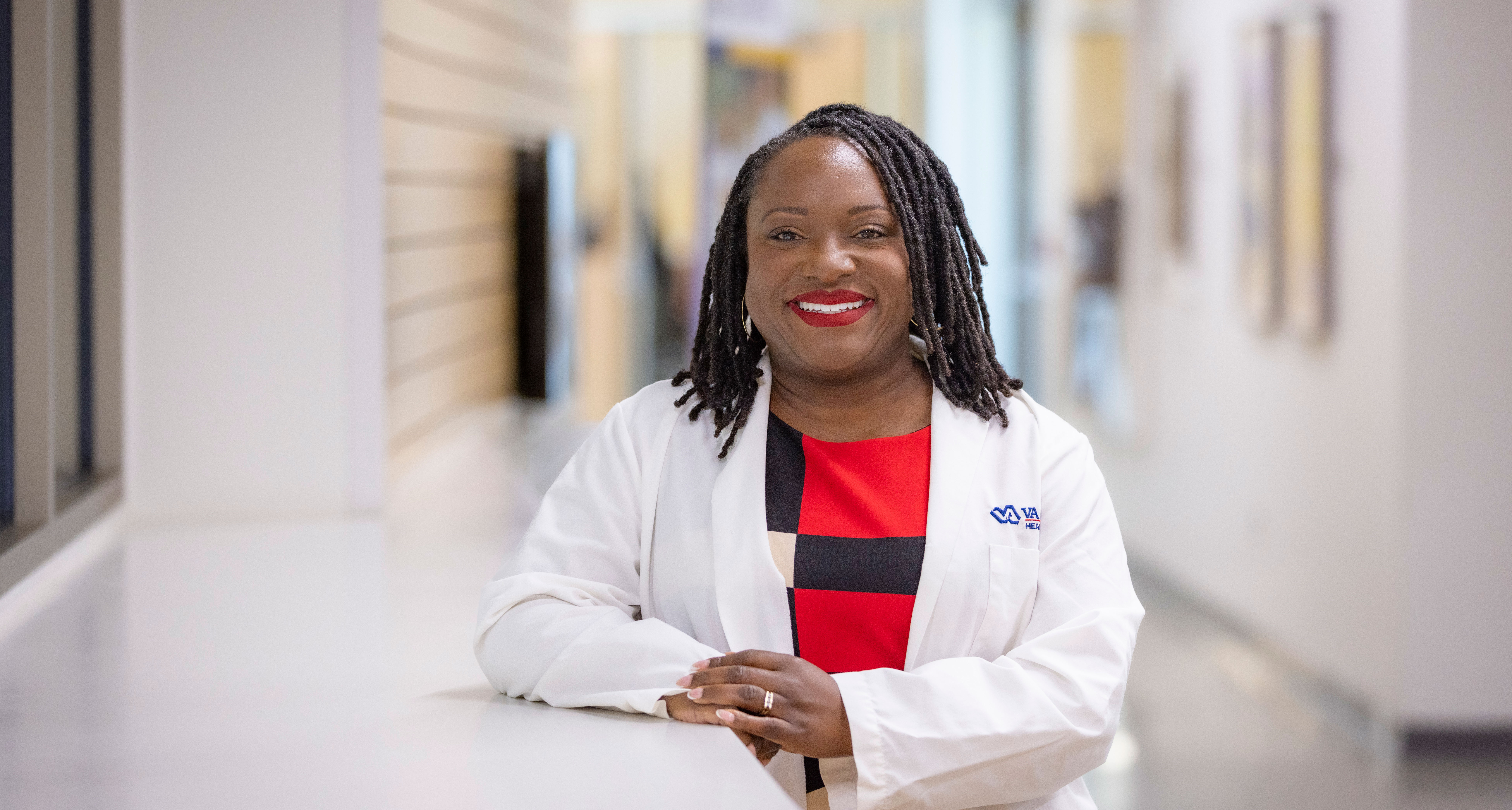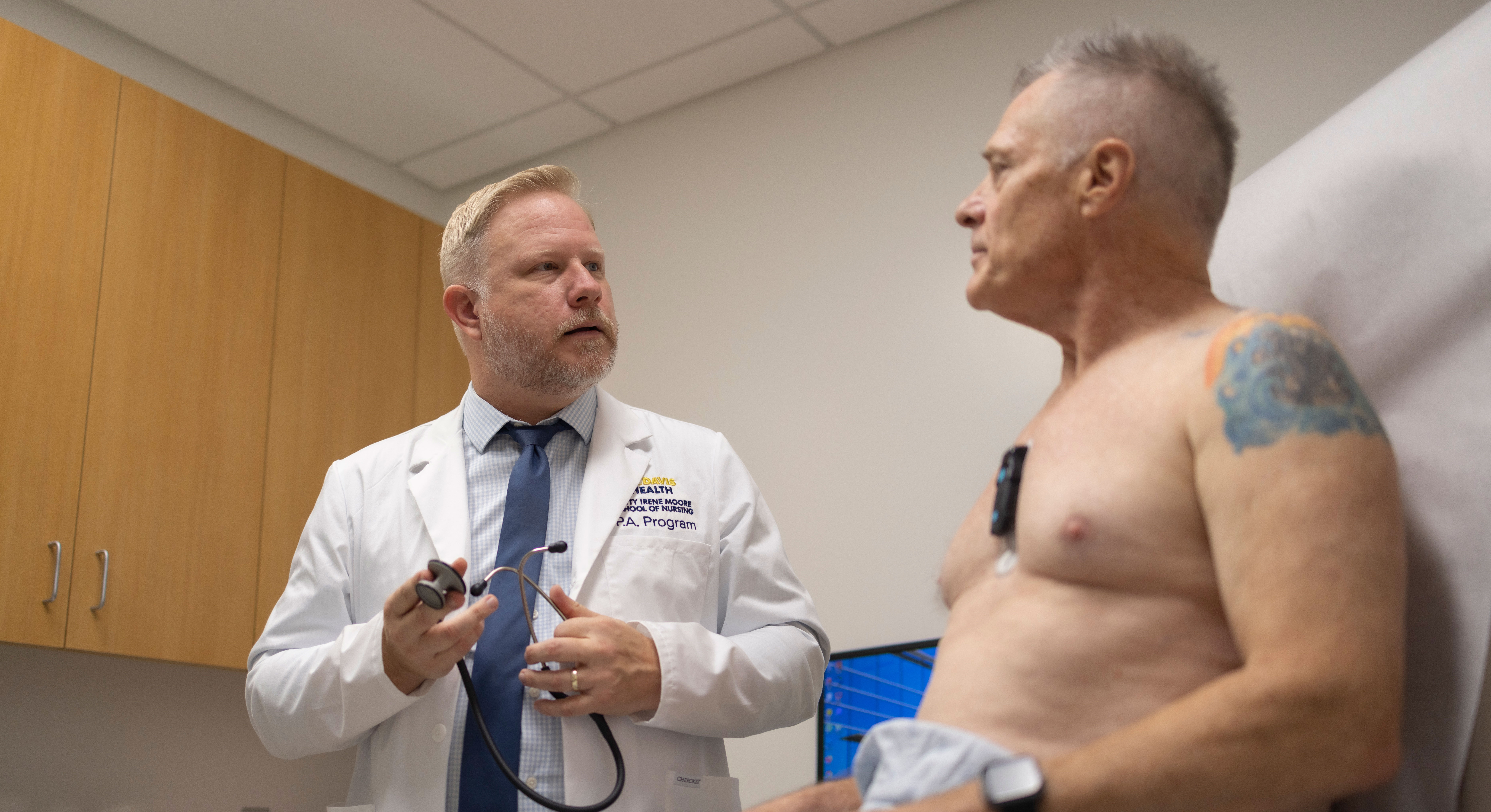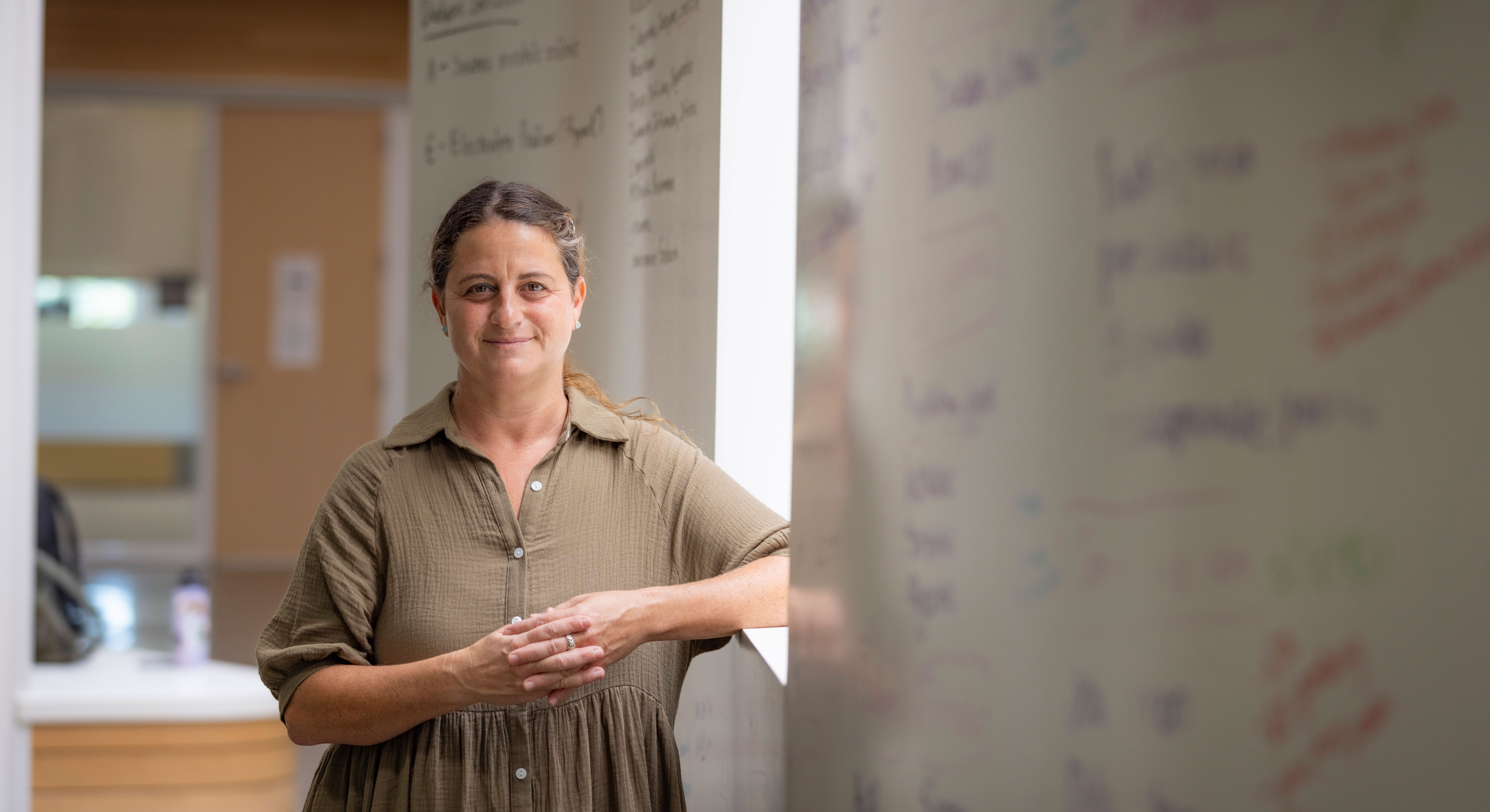Shontaya Carrico embarked upon a Doctor of Philosophy (PhD) degree to tell stories.
A nurse for 20 years — 10 of them a Clinical Nurse Specialist — she saw that the experiences of patients of color were not being discussed in the spaces, she believes, they should be.
“We’ve made some great strides in health care, but I really felt we could do better when we looked at diversity, equity and inclusion,” the third-year Ph.D. student said. “I would be at the bedside interacting with families and colleagues of color thinking, ‘Is it just me or are you experiencing these things?’ I built up my courage to ask them and realized racism is systemic.”
The right place for research
She felt the Betty Irene Moore School of Nursing at UC Davis would be the right place to begin developing a body of work examining what is needed for good outcomes in patients, namely those from communities of color. She chose to relocate to Sacramento to bring those narratives into her research.
“At a high level, I’m looking at diversity, equity, inclusion, belonging and anti-racism in nursing academia. Who are the people in these roles in charge of facilitating the work in a time when we have legislation in different states banning these efforts,” she explained.
Two years into the program, Carrico benefits from faculty from different disciplines and the lens they bring to her work. She says their perspectives broaden her outlook. She appreciates that the scholars who surround her are doing work in her space that can advance her research.
Commitment to diversity
“I wanted to find my people. I thought, if they’re committed to diversity, then they’re going to bring people who are wanting to study things on diversity, right?,” she explained. “I think that Betty Irene Moore School of Nursing is a great place for that student who is willing to take a chance and grow something new within themselves and within the school.”
Carrico and her work are gaining attention. She was named a 2024 Policy and Politics in Nursing Scholar from the AcademyHealth Diversity Scholars Program and was awarded a $5,000 United Health Foundation Scholarship from the National Black Nurses Association (NBNA). The School of Nursing brought a new chapter on growth to her personal story.
“I think nursing is a powerhouse. We have great scholarship within it,” Carrico said. “But now I see that in order to be effective in the role of being a leader and addressing racism, we have to be true to ourselves and that self-reflection.”






